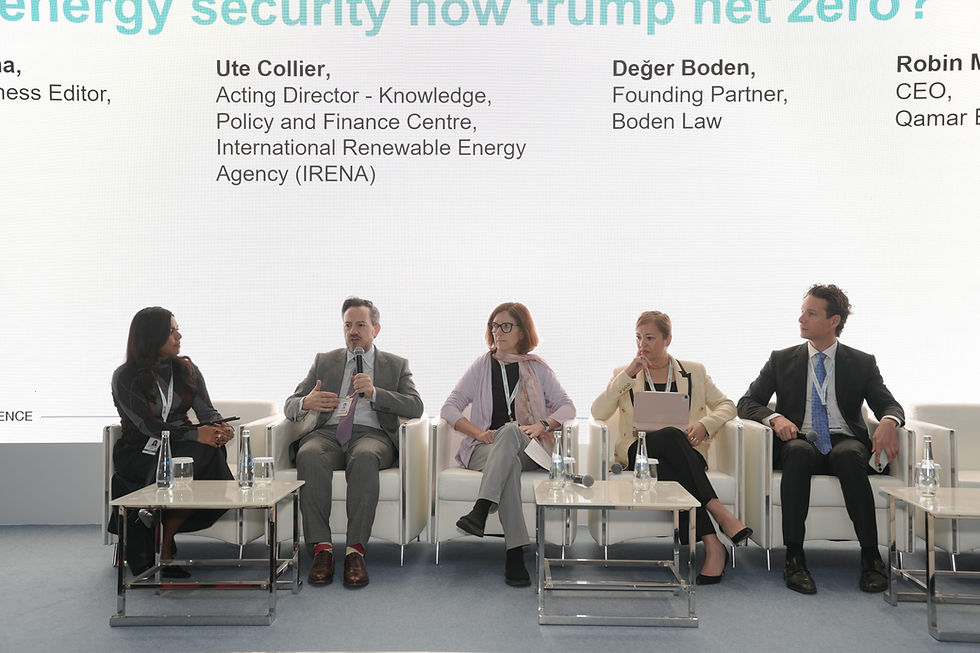Clean Hydrogen and CCUS central to MENA climate ambitions
- Ethan Fulton

- Nov 8, 2023
- 2 min read

The recent conference held at the King Abdullah Petroleum Studies and Research Center (KAPSARC) marked a pivotal moment in advancing commitment throughout the MENA region to advancing clean hydrogen and Carbon Capture Utilization & Storage technologies. In conjunction with the International Energy Forum, KAPSARC's "The Role of Clean Hydrogen and CCUS to Achieve Climate Ambitions in MENA" featured a bevy of regional energy leaders.
The conference included three panels about the importance of hydrogen, optimizing value chains, and securing private sector financing. Jeffrey Beyer, Zest Associates Managing Director, spoke at "Engaging the Private Sector and Securing Financing" to present a framework to accelerate the region's energy transition within this context.
The MENA region stands at the forefront of a hydrogen revolution.
Oman ambitiously plans to become the world's sixth largest hydrogen exporter by 2050.
Abu Dhabi's Masdar plans to produce a million tons of hydrogen gas per year by 2030.
The Saudi NEOM Green Hydrogen Company recently closed deals on an $8.4 billion green hydrogen plant.
But the market needs to grow further, faster, given ambitious governmental targets. A recent Hydrogen Council report shows that only 10% of the capital required for announced projects, which are capital intensive and highly affectd by regulatory frameworks, is tangibly committed.
In a series of roundtables with energy leaders, Zest Associates identified that directive policies that focus hydrogen support on hard-to-abate sectors and aim to stimulate demand and consumption should be top priorities to strengthen investor confidence and accelerate financing.

The UK-UAE Clean Hydrogen Collaboration report, authored by Zest Associates in partnership with the World Green Economy Organization and HSBC, provides a detailed look at priorities to accelerate the hydrogen industry across policy, supply, demand, investment, infrastructure and skills. Under high-adoption scenarios, hydrogen could create over 100,000 new jobs in each country by 2050.
In January 2023, the UAE and the United Kingdom signed a Memorandum of Understanding to enhance strategic and technical cooperation in the energy sector. This announcement builds upon corporate partnerships in the areas of blue hydrogen, carbon capture and storage and a number of bilateral investment deals.

While global partnerships are important to establish regional leadership, most new hydrogen consumption should occur within the MENA region. Hydrogen is still more expensive to transport and dispense than conventional fuels. But localizing consumption removes this barrier and could support local economic diversification efforts into green manufacturing.
But make no mistake: the transition into a green hydrogen economy is one that will require massive investment.

Global electricity demand is projected to reach 38,700 TWh by 2050, up from 25,000 TWh in 2017. Hydrogen production may fulfill 15-24% of that demand. To reach net zero, total hydrogen investment must reach $1.2 trillion by 2030 and $10 trillion by 2050 — 44% of global renewable energy investment.
The MENA region leads the global conversation on scaling up its clean hydrogen economy. It is a massive challenge, and one that promises to continue to shape the energy conversation through COP28 and decades to come.


Comments